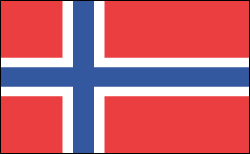Norway News & Current Events


Politics In the 21st Century
In March 2000, Prime Minister Kjell Magne Bondevik resigned after Parliament voted to build the country's first gas-fired power stations. Bondevik had objected to the project, asserting that the plants would emit too much carbon dioxide. Labor Party leader Jens Stoltenberg succeeded Bondevik. Stoltenberg and the Labor Party were defeated in Sept. 2001 elections, and no party emerged with a clear majority. After a month of talks, the Conservatives, the Christian People's Party, and the Liberals formed a coalition with Bondevik as prime minister. The governing coalition was backed by the far-right Progress Party. But in Sept. 2005 elections, the center-left Red-Green coalition gained a majority of seats, and Jens Stoltenberg of the Labor Party once again became prime minister.
In April 2008, government officials agreed to amend the 1814 Constitution to loosen the ties between church and state. The monarch must still be Lutheran, but citizens are no longer required to raise their children as Lutherans. In the future, the church will appoint bishops instead of the monarch, and equal financial backing for other faiths and atheist communities must be provided by the state.
In June 2008, Parliament voted 84–41 to pass a new marriage act, granting homosexual couples the same marriage and adoption rights as heterosexual couples.
2011 Terrorist Attacks
On Friday, July 22, 2011, Norway was hit with two related terrorist attacks. First, a bomb exploded in Regjeringskvartalet, the government quarter of Oslo. The explosion happened right outside the prime minister's office as well as other government buildings, killing eight people and wounding several others. Two hours later, a gunman disguised as a policeman opened fire on campers at a camp for young political activists on the island of Utoya in Tyrifjorden, Buskerud. The camp was organized by the youth organization of the Norwegian Labour Party. The gunman killed at least 68 campers, including personal friends of Prime Minister Stoltenberg. Police arrested Anders Behring Breivik who has been charged with both attacks. Breivik, a 32-year-old Norwegian and a right-wing fundamentalist Christian, has been linked to an anti-Islamic group and may be connected to other terrorist groups.
On July 24, Breivik admitted to "the facts" of the attacks. However, he did not admit criminal guilt and claimed that he was acting alone, which contrasted some of the statements given by witnesses. According to his lawyer, Breivik called the killings "atrocious", but "necessary". Authorities said Breivik was obsessed with the threat of Muslim immigration and multiculturalism to the cultural values of his country. Out of respect for the victims, stores in Norway removed certain war toys and computer games from shelves. Breivik was a talk forum regular for players of the online game, World of Warcraft. In the days following the attacks, Norway police were under scrutiny. It took SWAT units more than an hour to reach the camp. A police helicopter was unable to get off the ground. News crews arrived first, but could only watch Breivik's massacre. Police officers drove to the shore and used boats to get to the island.
2013 Parliamentary Elections Brings Shift in Leadership
On September 9, 2013, Norway held a parliamentary election. The right-of-center coalition won 96 seats, while the Red-Green incumbent government coalition kept 72 seats. The Green Party took one seat.
This was the fourth election for incumbent Prime Minister Jens Stoltenberg. He was defeated in the 2001 parliamentary election, but won in 2005 and 2009. If Stoltenberg would've won in 2013, he would have been the first prime minister in Norway's history to be elected for three consecutive terms. However, he lost and Erna Solberg, the leader of the Conservative Party, was named prime minister. Solberg took office on October 16, 2013. Solberg became Norway's second female prime minister. Gro Harlem Brundtland was the first.
See also Norwegian dependencies.
See also Encyclopedia: Norway .
U.S. State Dept. Country Notes: Norway
Statistics Norway www.ssb.no/www-open/english/ .







